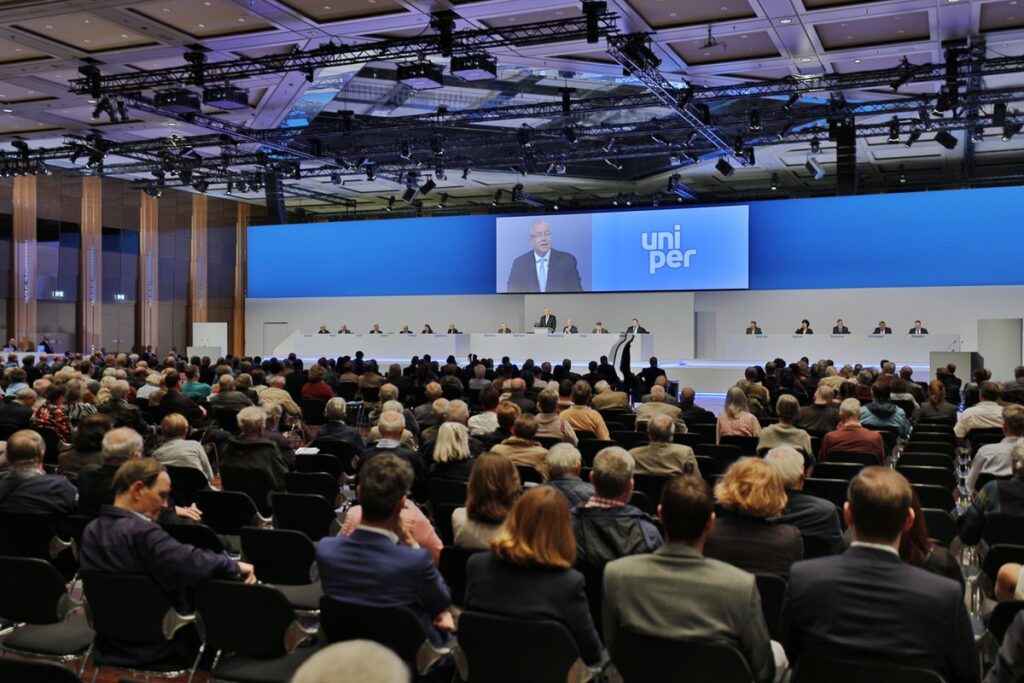As Russia turns off the taps on Europe’s gas supply, major importers are struggling to survive on limited supplies. Uniper, which once imported and stored massive volumes of Russian natural gas, is on the brink of collapse. If it falls, much like Lehman Brothers during the 2008 recession, it may bring others with it, according to Belgian broadcaster RTBF.
Uniper has struggled to survive the European energy crisis, as much of its business is reliant upon Russian energy import . Before the introduction of sanctions, the Düsseldorf-based company was one of Europe’s largest importers of Russian gas.
The company now says that it is in emergency talks with banks and the German government to ensure its financial stabilisation. The company has also drawn from 2 billion from an “existing credit facility” in order to stay afloat.
Russian energy warfare
Other European energy nations and energy importers are looking at this potential collapse with great concern. Energy companies will need to ensure that they have sufficient volumes for the winter heating season. If companies are physically unable to purchase sufficient volumes of gas, and at affordable prices, this spells disaster for the economy.
Gazprom, Russia’s gas monopoly, has been using force majeure to justify its massive reduction in gas deliveries to Germany.
In June, Russia cut deliveries of gas through the Nord Stream 1 pipeline, which breaks land in Lubmin, Germany, by 40%, citing Siemens's failure to deliver equipment to Russia. Energy expert Andrii Ursta, from Ukrainian energy think-tank DiXi Group cast doubt on these explanations, stating there were “too many coincidences” in Gazprom’s official explanation.
Gazprom is also claiming that “routine maintenance” of the pipeline makes it unable to meet its contractual obligations, further increasing the strain of energy shortages in Europe. Russia claims that the pipeline will be operational by 21 July, but it remains to be seen whether Russia follows through with the promise. By claiming force majeure, Russia is free from having to pay compensation for lack of supply.
Reduced capacity through the Nord Stream 1 pipeline disproportionally hurts Uniper, which split from energy multinational E.ON back in 2016. The reduced capacities have massively hurt Uniper’s balance sheet. Every day that Gazprom does not meet its obligations, the German company suffers.
The company is now forced to buy gas through European energy markets to meet its own obligations to customers. At the time of publication, gas prices on the Dutch TTF Gas Futures market were 160 per megawatt hour, almost eight times higher than in July 2021.
Uniper’s CEO, Klaus-Dieter, has warned that Gazprom’s refusal to send gas to Europe is costing the company “tens of millions of euros” every day. As such the company is borrowing massively and may even ask the state to buy 25-30% of its capital.
Chain reaction
The German energy company's majority shareholder Fortum, a Finnish state-owned energy company, has been asked by the German government to contribute to the bailout of the company.
Fortum has refused, stating that it has already extended 8 billion in support. It would prefer the German government to take up some of the shares and the financial burden instead. The negotiations on Uniper’s financial future are frozen, but a response is expected at the end of the month.
Related News
- Belgium presents 'Winter plan' to prevent energy shortages
- Recession likely as Euro slumps to new lows
- Gas and electricity consumption drops heavily as prices skyrocket
According to RTBF, the German government is left with a difficult situation. It must either step in to bail out the flailing energy company, or let it go bankrupt, potentially setting off a chain reaction among energy companies, much like in the 2008 banking crisis.
Europe is now scrambling to secure alternative sources of energy before the winter. The switch away from Russian energy has come much faster than many experts predicted and a full green transition will take many years to achieve. National and supranational governments are now calling for massive energy saving measures in order to avoid gas shortages during the winter.
President of the European Commission, Ursula von der Leyen, recently concluded a visit to Azerbaijan, where leaders agreed to “double gas supplies” from the Caucasian nation to Europe. This alone will not be enough to bridge the EU’s energy deficit. The EU is now exploring on all fronts, attempting to bolster production in Norway and diversify supplies through the import of expensive liquefied natural gas (LNG).
On 20 July, the European Commission is set to unveil its plan for overcoming the energy crisis. This may include massive reductions in consumption and limits for EU Member States.

